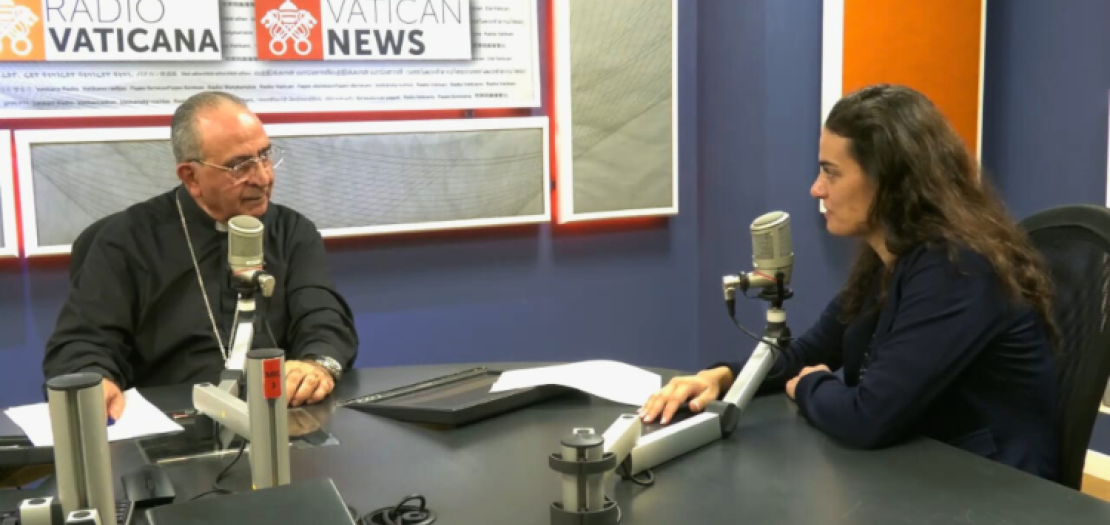“I think we are witnessing a wedding of holiness.”
Bishop Simon Faddoul offered that assessment of the canonization that took place at Mass on Sunday in St. Peter’s Square.
Speaking to Nour El Khoury at the studios of Vatican News, the Bishop for Maronite Catholics in Western and Central Africa recalled that the blood brothers Francis, Mooti, and Raphael Massabki were martyred alongside eight Franciscan friars in 1860 and were canonized with them on Sunday.
Known as the 11 Martyrs of Damascus, they were murdered in hatred of the faith at St. Paul Monastery during the Muslim Ottoman persecution of Christians, which spread over Lebanon and Syria.
Bishop Faddoul said the three Maronite laymen stand as role models for all laymen, showing how “courage and perseverance in the faith can pay off in the Church.”
He also recalled the situation currently facing many people in the Middle East.
“Especially during these difficult times, this event reminds us to root our people more and more in their land,” he said. “Looking back in history, we remember that many of our forefathers gave their lives for their faith.”
The Bishop said these many Maronite martyrs bear witness to the importance of persevering in their homelands in the Middle East, saying the land has been “watered by the sweat and blood of our forefathers.”
Constant communion with Rome
Bishop Faddoul recalled that the Maronite Church began around 430-400 after the death of St. Maron, but was already officially recognized as participating in the Council of Chalcedon in 451.
“Since then, the Maronites have been faithful to Rome and the Holy See,” he said. “I believe the canonization of the martyrs brings the Maronite Church closer to the Universal Church.”
As an Eastern rite of the Catholic Church, the Maronite Church has its own unique role to play in the body of Christ, said Bishop Faddoul.
He noted that the canonization of Francis, Mooti, and Raphael Massabki offers an opportunity to showcase that unity.
“The relationship between the Maronite Church and the Universal Church is strengthened all the more with every canonization that takes place, fostering a deeper sense of identification and unity.”
By Devin Watkins | vaticannews.va






